In many conflicts around the world, more children die from diseases linked to unsafe water than from direct violence. UNICEF is releasing Water Under Fire volume 3, a report that highlights the issues children face in accessing water in times of war.
Archives
Water Under Fire (Vol 3)
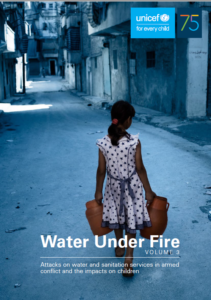
Water Under Fire (Vol 2)
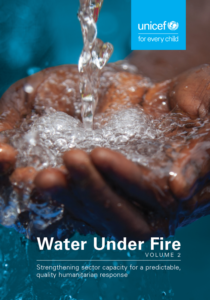
This second volume of the Water Under Fire report series is dedicated to the WASH sector’s capacity to deliver a predictable, quality humanitarian WASH response, and provides a change agenda and road map towards strengthening this capacity.
Faecal Sludge Management

This book compiles the state of knowledge of this rapidly evolving field, and presents an integrated approach that includes technology, management and planning. It addresses the planning and organization of the entire faecal sludge management service chain, from the collection and transport of sludge and treatment options, to the final enduse or disposal of treated sludge. In addition to providing fundamentals and an overview of technologies, the book goes into details of operational, institutional and financial aspects, and provides guidance on how to plan a city-level faecal sludge management project with the involvement of all the stakeholders.
To know more: www.sandec.ch/fsm_book
- Tags: Desludging and Excreta Transportation, Excreta Management, Excreta Treatment, Faecal Sludge Management, Septic Tanks, Sewerage and Excreta Conveyance, and Waste to Value. Organisations: EAWAG and IWA.
COVID-19 Preparedness in UNHCR Schools (UNHCR, 2020)
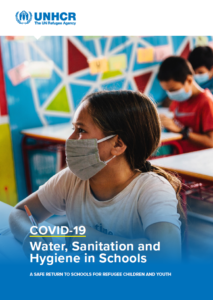
This document presents the results of a survey assessing the WASH readiness of schools in UNHCR-
supported refugee camps and refugee settlements. UNHCR and partners are using the results to improve water, sanitation and hygiene (WASH) COVID-19 mitigation measures in schools and design targeted improvements to WASH facilities to allow for safe operation of schools.
- Tags: COVID-19.
Compendium of Accessible WASH Technologies
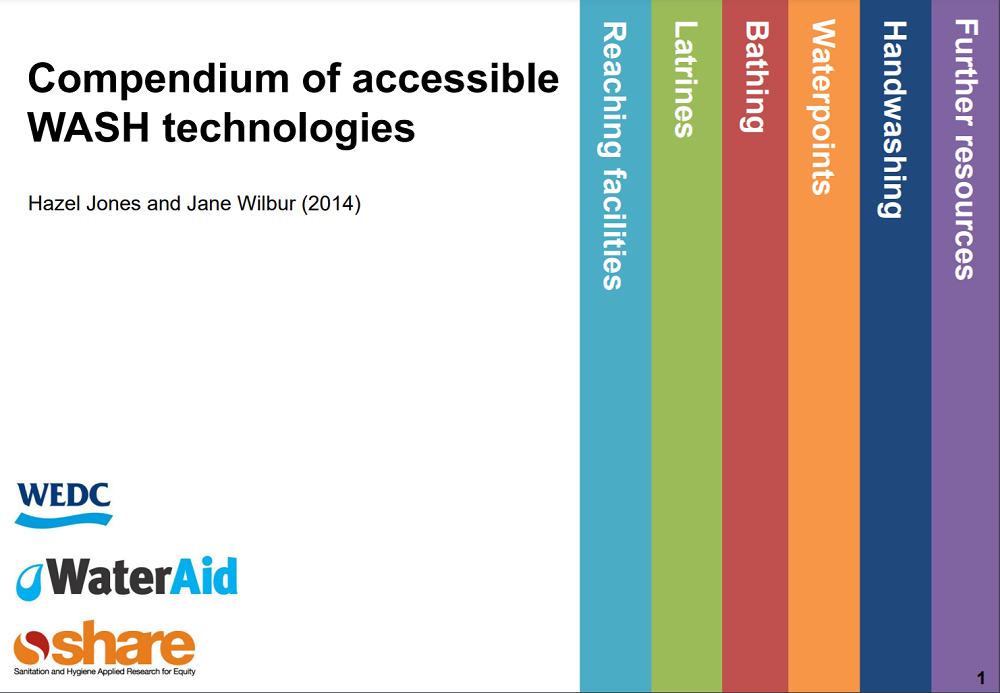
WASH in Schools Checklist (UNHCR, 2020)
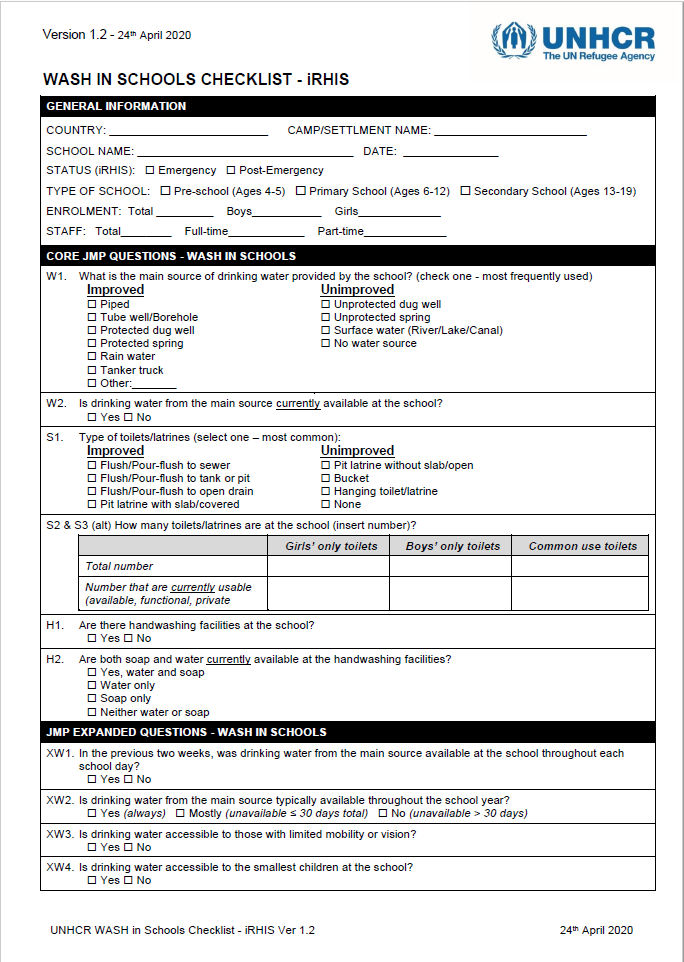
The UNHCR WASH Monitoring System includes monitoring of refugee schools following the Joint Monitoring Program (JMP) guidelines, model questions and standard indicators. All refugee schools should be surveyed at least once a year. Indicators are tracked on the Refugee WASH in Schools Dashboard.
- Categories: WASH Blank Forms.
COVID-19 Training Webinar: Preparedness for Safe Refugee Schools (UNHCR, 2020)
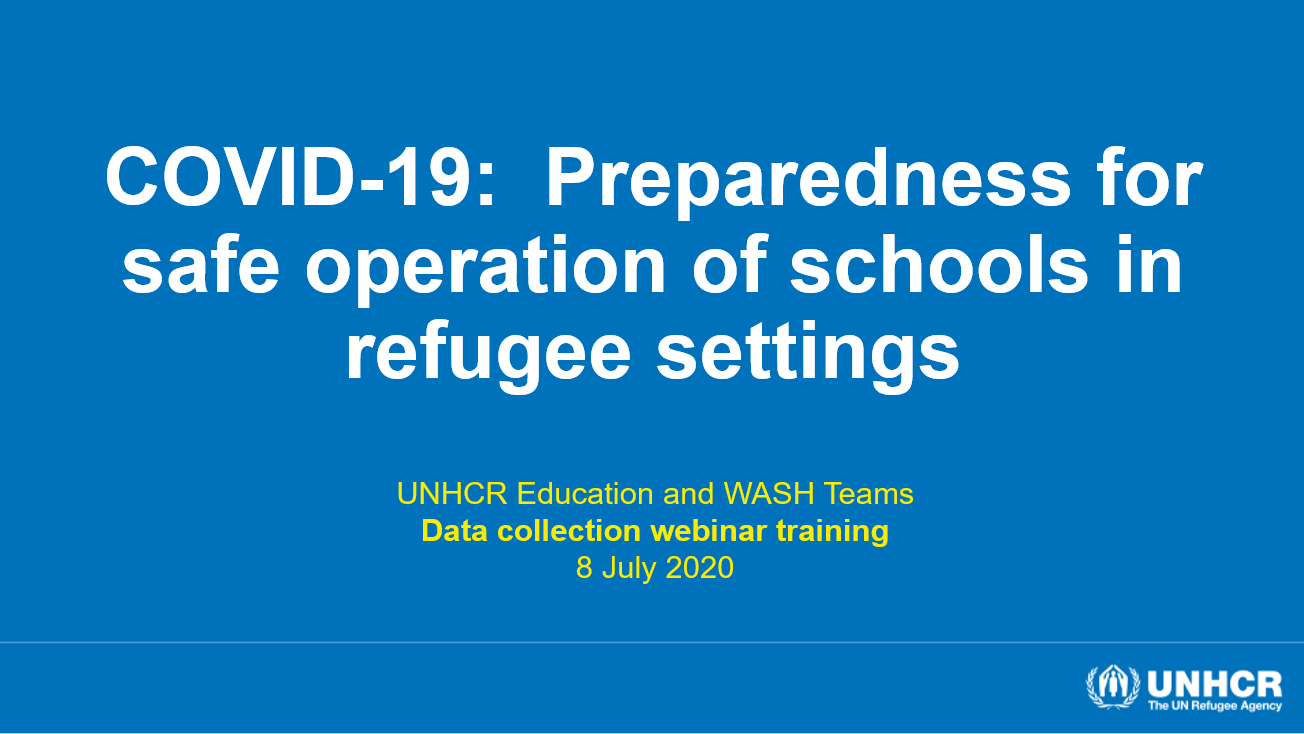
This training powerpoint presentation was used as part of a webinar for preparedness for safe operation of schools in refugee settings with relation to COVID-19. The webinar describes the rationale of data collection, how the data collection should be carried out, prioritised locations, timeline and specific practical training on mobile data collection using Open Data Kit (ODK) Collect.
Core Questions and Indicators for Monitoring WASH in Schools (JMP, 2018)
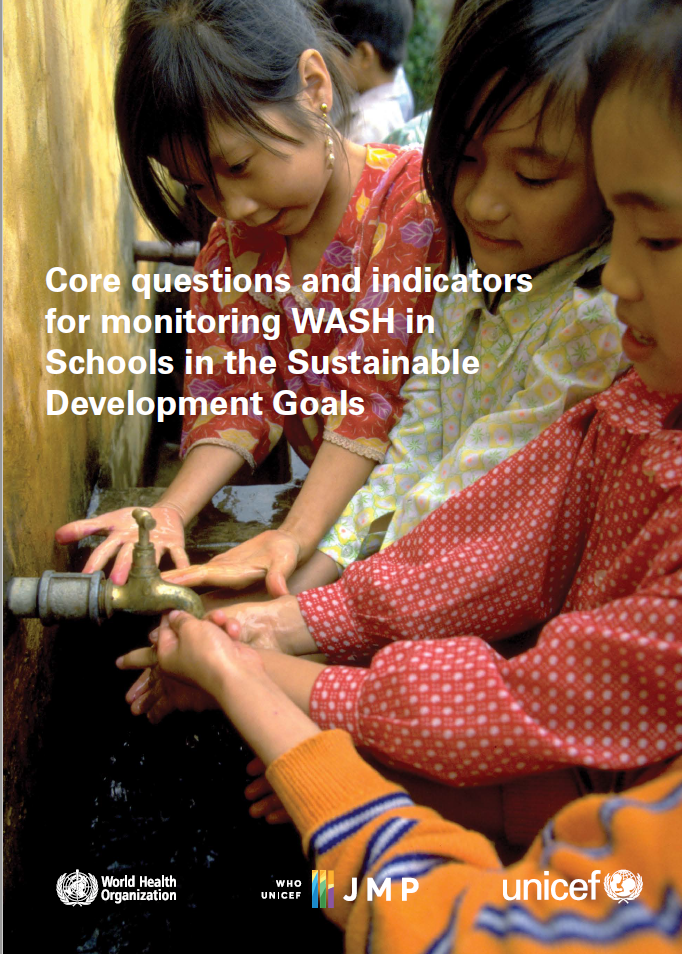
This document presents recommended core questions to support harmonised monitoring of WASH in schools as part of the SDGs. The questions in this guide were agreed upon by the Global Task Team for Monitoring WASH in Schools
in the SDGs, convened by the Joint Monitoring Programme for Water and Sanitation (JMP). They are based on the current global norms, existing national standards, questions in national censuses and multi-national surveys, global WASH in schools monitoring recommendations, and normative human rights criteria: availability, acceptability, accessibility and quality.
Water Supply in Protracted Humanitarian Crisis (OXFAM, UNHCR, 2020)
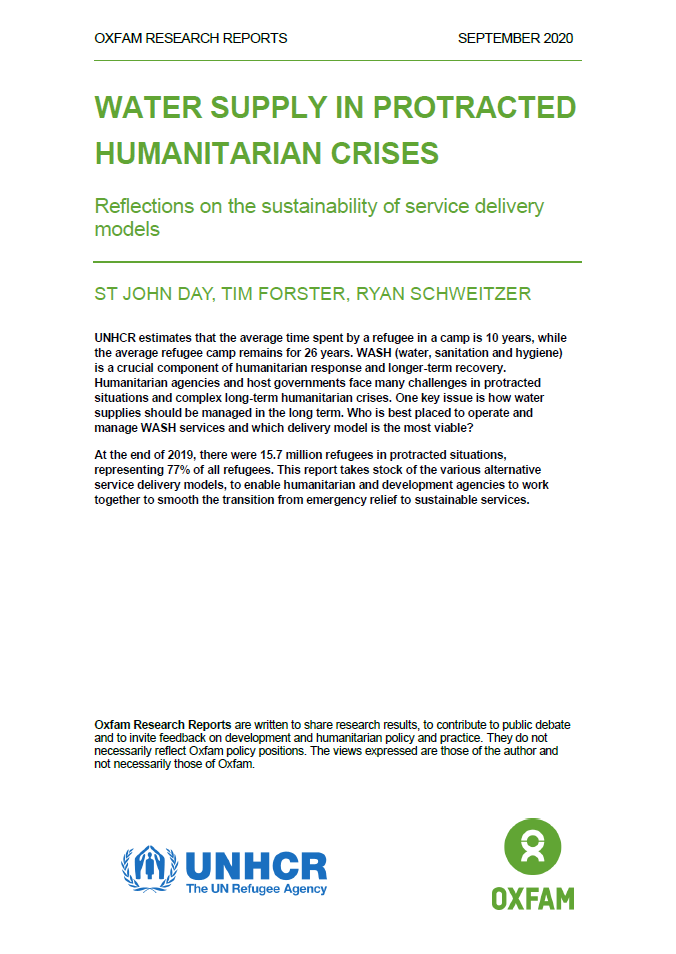
This paper looks in more detail at the concept of sustainability of water supply in protracted crisis and sets out a number of factors that should be considered if better service delivery arrangements are to be achieved.
- Tags: Water Supply. Organisations: OXFAM GB. Categories: WASH Guidelines, WASH Operational Guidelines, WASH Operational Guidelines, WASH Reference Documents, WASH Reference Documents, WASH Reference Documents, WASH Reference Documents, WASH Reference Documents, WASH Reference Documents, WASH Reference Documents, and WASH Reference Documents.
WASH Monitoring System Briefing Note v2 (UNHCR, 2020)
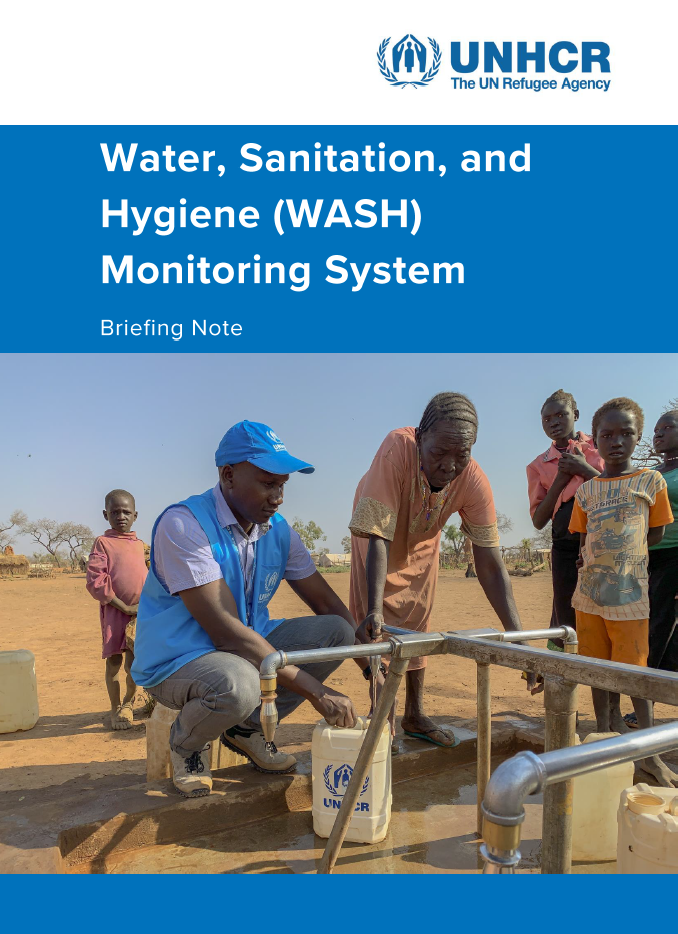
This condensed briefing note describes the components of the UNHCR WASH Monitoring System in particular why monitor, when to monitor, and what to monitor.
